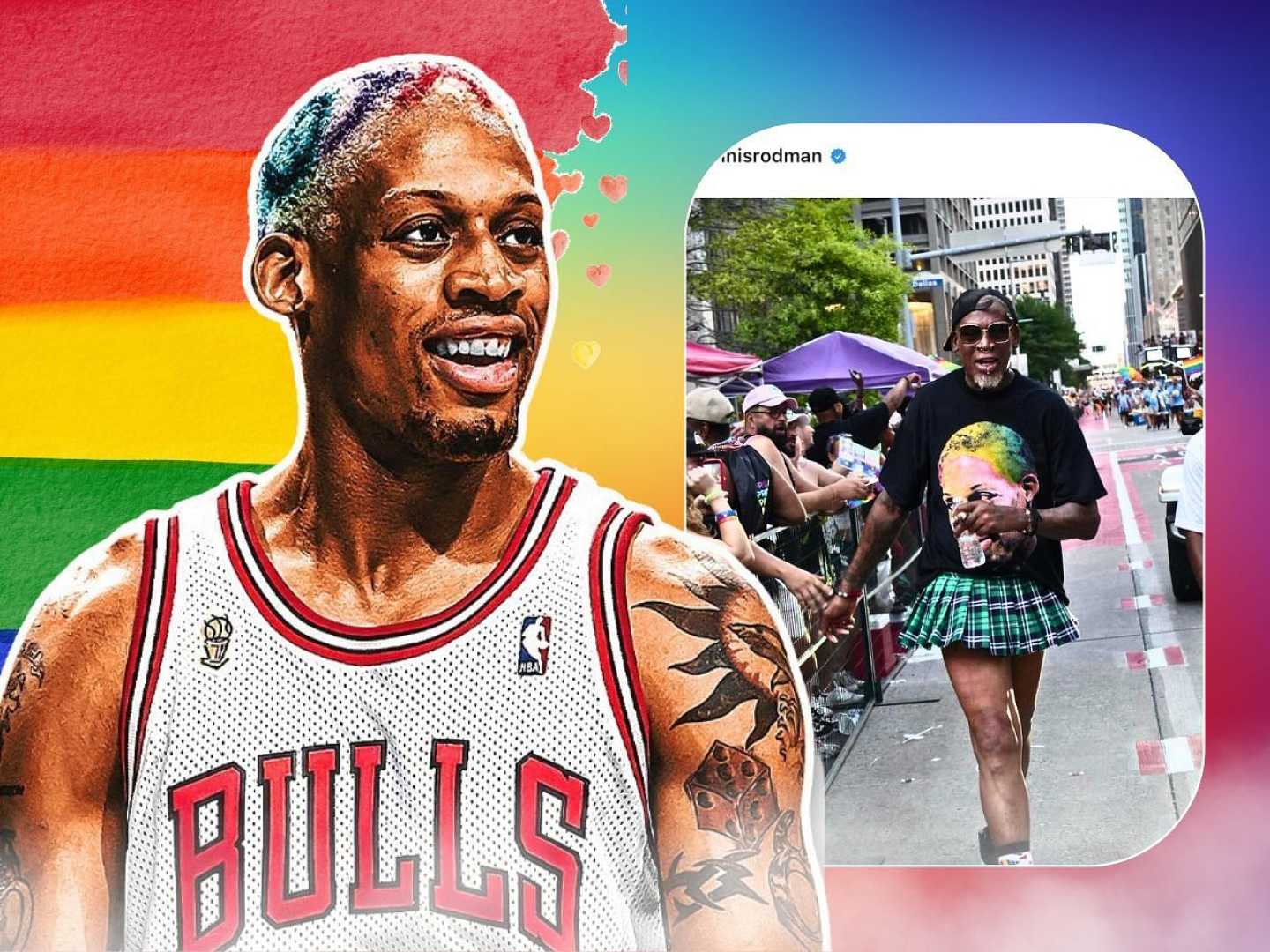Sports
How Dennis Rodman Inspired Self-Expression in Chicago’s LGBTQ+ Community

CHICAGO, IL — In 1996, Dennis Rodman transformed sports and culture with his bold self-expression while playing for the Chicago Bulls. As a self-described icon of individuality, Rodman’s approach resonated with many, particularly within the LGBTQ+ community.
Rodman’s unique style and fluid gender expression came to the forefront when he graced the cover of Sports Illustrated in May of that year dressed in a tank top and hot pants. The article signaled a shift in the sports world as Rodman openly discussed his exploration of identity and gay culture.
“Everybody visualizes being gay—they think, ‘Should I do it or not?’” Rodman said in the interview. “Hell, you’re not bad if you’re gay, and it doesn’t make you any less of a person.” These words had a significant impact, particularly as he played in the vibrant city of Chicago, a hub for gay advocacy.
Amidst the Bulls’ championship run, Rodman not only excelled on the court but also engaged in noteworthy acts of self-expression. He died his hair in vivid colors and adorned piercings and tattoos, making his presence felt both in sports and popular culture.
Rodman’s influence extended beyond athletics; his persona inspired many fans, especially youth, to express themselves authentically. Parker Molloy, a trans journalist who grew up idolizing Rodman, reflected on how he shaped her understanding of identity. “I thought it was cool to see a player who didn’t care about what he was ‘supposed to do’ and did his own thing,” she said.
His impact on the LGBTQ+ community was palpable; as noted by LGBTQ+ activist Otis Richardson, Rodman brought visibility like never before. “He gave great freedom to youths growing up to express themselves,” Richardson stated.
As Rodman continued his career with the Bulls, his personality flourished. He was granted the freedom to embrace his individuality without being tamed, producing a synergy that benefitted both him and the team.
Despite being labeled as “wacko” at times, his hard work earned him respect among his teammates. Michael Jordan commented post-finals about Rodman, saying, “His dresses don’t bother me. His hair doesn’t bother me.”
Rodman’s contributions to sports and culture paved the way for discussions on identity and acceptance. His actions elicited a sense of pride and visibility that many in the community still appreciate today. “Rodman’s journey helped reframe public perceptions of who athletes can be,” said Jack M Silverstein, a sports historian.
Even decades later, Rodman’s legacy endures, inspiring new generations to embrace their true selves while navigating their respective journeys.












